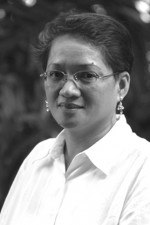Manila—The 44th Annual General Meeting and National Convention of Victo National Cooperative Federation and Training Center, also known as Victo National, drew hundreds of delegates to this old capital city to take part in business meetings, interaction, camaraderie and a visit to nearby tourist destinations—activities all rolled into some 36 hours, travel time excluded.
Amazingly, delegates from different parts of the country representing some 250 primaries or coop enterprises didn’t seem to mind the high-speed pace of the program. Business opportunities are up for grabs, learnings are plenty if one is fully attentive and fellowship for those who want to connect with fellow co-operators outside their spheres of influence can be had by just table hopping during lunch and dinners, and taking selfies in between.
Victo National is a secondary coop based in Cebu City and counts more than 200 affiliates all over the country. The journey of Victo, which started as a parish organization in Hinundayan, Leyte, can only be described as remarkable. Forty-four years of changing lives and communities, seven of them as a federation have amply demonstrated the strength of cooperativism in general and Victo in particular, as a tremendous resource in transforming lives.
The impact of cooperatives is oftentimes gauged in terms of economic rates but it is an oversimplified assessment, one that practically ignores the Christian approaches to development which is at the heart of the cooperative principle.
In the case of Victo National, its roots can be traced to the efforts of the Canadian Scarborough missionaries who arrived in the early ’60s in the impoverished town of Hinundayan, Leyte and who were appalled by the widespread poverty of the area. To abbreviate this long story, the Scarborough Fathers, who were well-versed in the cooperative system in Canada, set up a parish-based credit union called “Savings Souls the Credit Union Way.” The rest, as the cliché goes, is history.
This year’s general assembly has for its theme, “Shaping the Decade.”
Having spent its federated energies and resources in organizing households as cooperatives in the ’70s, building and capacitating them into effective and efficient engines of development in the ’80s, turning them into viable and competitive business into the ’90s and strengthening all the gains of the past three decades well into the new millennium, I can understand why Victo echelon led by board chairman Doris Canares, chief executive officer Renia Salinas and members of the board of directors are all upbeat about entering the 4th decade.
The significance of the theme can also be appreciated in the way the federation mobilized its forces to help its members in the aftermath of supertyphoon Yolanda, which devastated the Visayas especially Tacloban and Ormoc cities, two areas where many cooperatives are based and serving tens of thousands of households.
During one of the breakout sessions held on the first day of the event, Remy Rikken, a member of the Philippine Commission on Women, challenged delegates to integrate social issues in cooperative undertakings. Cooperatives are civil society groups but a distinction has to be made with non-government organizations or NGOs of the Napolist variety, she said to add humour to her speech.
The coop voice is strong and needs to be heard in issues like climate change, disaster risk and management, cybersex, teen pregnancies and good governance or politics.
* * *
By the way, the Victo assembly was held in the Manila Grand Opera Hotel, located in the heart of the old capital city.
By the hotel’s entrance, one finds a stone marker that says the area was the location of the inauguration of the members of the First Philippine Assembly on Oct. 16, 1907. The original structure dates back to the mid-19th century when it was named H.T. Hashim’s National Cycle Track, a circular wooden structure with a roof made of nipa.
In 1890, the place became the venue of the visiting Russian Circus and American theatre artists. The name was subsequently changed into the Manila Grand Opera House where Philippine vaudeville artists of the olden times thrived.
The memories of the “bodabil” are enshrined in black and white photos hanging in the walls of the different floors of the three-star hotel. I hope that the owners of MGOH, said to be led by businessman and Philippine Ambassador to Laos Antonio Cabangon Chua, will one day find a great spot, maybe a whole new floor to display all memorabilia of the Manila Grand Opera House, a fitting tribute to our forebears in the arts and theatre.
Disclaimer: The comments uploaded on this site do not necessarily represent or reflect the views of management and owner of Cebudailynews. We reserve the right to exclude comments that we deem to be inconsistent with our editorial standards.

